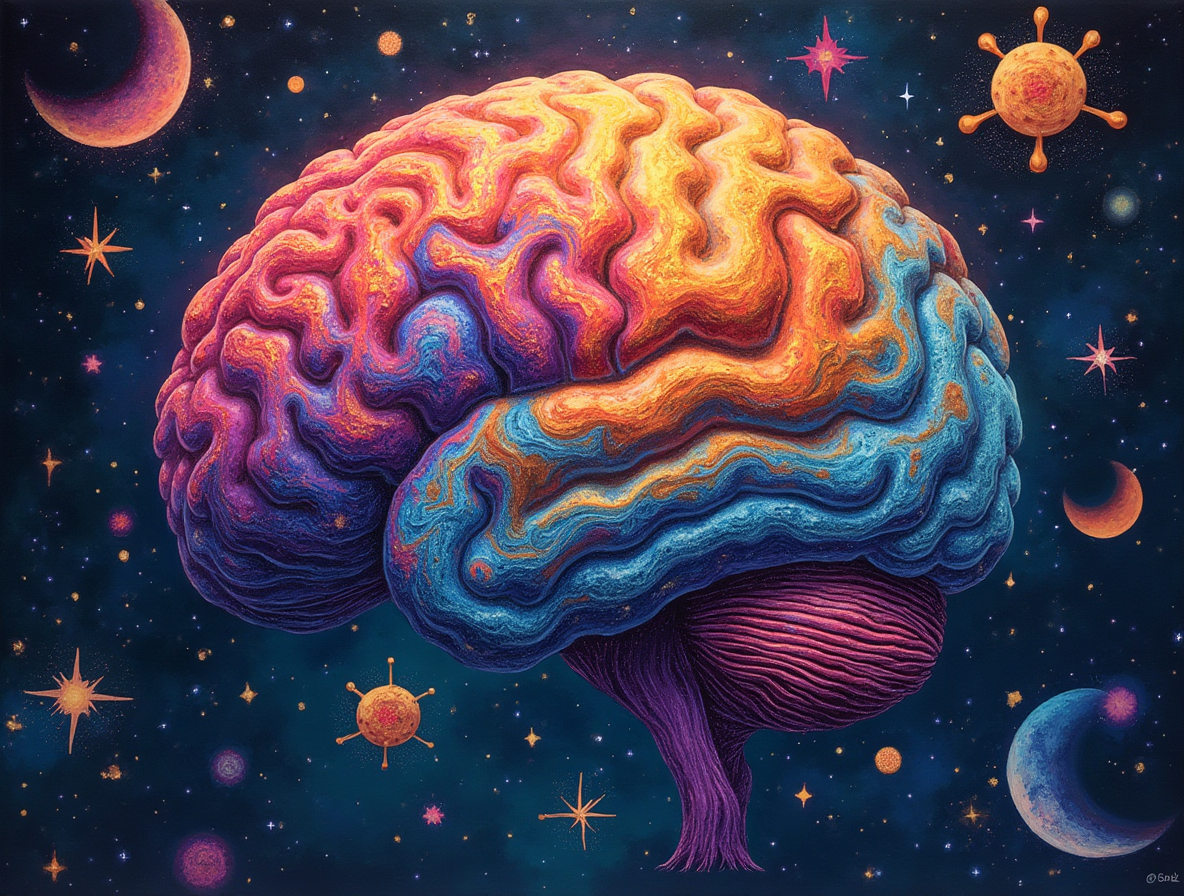Embracing Neurodivergence: Practical Insights into Psychedelics for ADHD Management
In today’s ever-evolving world of alternative therapies and personal wellness, exploring the intersection of neurodivergence and psychedelics can offer unique insights. This discussion provides a compelling look at the potential of psychedelics in managing neurodivergence, including ADHD, and presents a range of personal experiences and strategies for optimizing daily life.
This post is written upon reflection of a podcast episode on Redesigning the Dharma discussing these themes.
Understanding Neurodivergence and Psychedelics
For individuals with ADHD and autism, alternative methods to enhance focus and manage impulsivity can be valuable. Some approaches emphasize creating accessible, decentralized community care models and leveraging the therapeutic benefits of psychedelics. This perspective highlights embracing the unique strengths of neurodivergence while navigating its challenges.
The Potential of Psychedelics in ADHD Management
Many individuals have explored the use of microdoses of psychedelics such as LSD to boost focus and mitigate the more disruptive symptoms of ADHD. A structured approach to daily routines can optimize mental clarity and productivity:
Morning Routine and Microdosing: Starting the day with a volumetric microdose of LSD, allowing time for the body to awaken slowly before diving into mentally demanding tasks. This includes engaging in basic physical activities and grounding exercises like stretching or taking a shower to ensure a balanced entry into the day.
Mindful Task Management: Rather than compartmentalizing tasks into folders, embracing a more dynamic approach. Treating ongoing responsibilities as a singular queue, engaging with each as they arise, from mundane personal notes to formal business contracts.
Autonomy through Automation: Stressing the importance of automating repetitive tasks to free up mental energy for creative problem-solving and collaboration, using today's technological advances to one’s advantage.
Tools and Strategies for Managing Sensory Sensitivities
Given the heightened sensory sensitivities associated with both neurodivergence and the use of psychedelics, several tools can help navigate daily environments:
Noise-Cancelling Headphones: Managing sensory overload by reducing ambient noise, which often leads to increased anxiety or sensory irritation.
Visible Organization Systems: Combatting object permanence issues in ADHD by using clear glass storage for food, ensuring that everything remains within view to avoid forgetfulness.
Emotional and Social Connectivity through Psychedelics
Psychedelics have been reported to have a profound impact on emotional regulation and social connectivity, which is vital for individuals like him who often struggle with social nuances:
Serotonin and Social Awareness: Psychedelics like LSD can provide a boost in serotonin, enhancing the ability to interpret and respond to social cues and emotional contexts both inwardly and externally.
Building Community and Support Networks: Fostering networks of support and engaging in community projects, be it through online platforms or local meetups, to share insights and solutions collaboratively.
The Balance of Technology and Nature
Incorporating technology responsibly is another facet explored in the discussion. While acknowledging the potential dystopian nature of unchecked technology use, the benefits of fostering innovation and efficiency when harmonized with natural rhythms and routines are emphasized.
Structured Work Periods: Aligning workdays with intense productivity sprints followed by rest and social days to create an adaptable work style that respects natural ebbs and flows.
Intentional Disconnecting: Reducing screen time, particularly when psychedelics increase sensitivity to artificial stimuli, thus prompting a reconnection with nature and introspection.
Meditation and Inner Journey
A notable part of the discussion includes the transformative power of Vipassana meditation retreats, which starkly contrast with psychedelic experiences yet offer similarly profound shifts in self-awareness and emotional healing.
Enduring Silent Reflection: The radical simplicity of prolonged silent meditation affords individuals an opportunity to confront deep-seated self-perceptions and emotional challenges, often resulting in lasting internal peace and self-acceptance.
Concluding Insights
This perspective argues for an acceptance of the chaotic yet structured world of neurodivergence, where psychedelics serve as both a tool of exploration and a method of managing ADHD symptoms. A blend of personal experience with systemic strategies offers tangible lessons for anyone interested in harmonizing their unique cognitive wiring with the demands of a fast-paced world.
Ultimately, embracing neurodivergence involves integrating supportive routines, forming meaningful community connections, and continually seeking insights—whether through psychedelics, meditation, or personalized daily structures—to enrich one’s personal and professional life.


